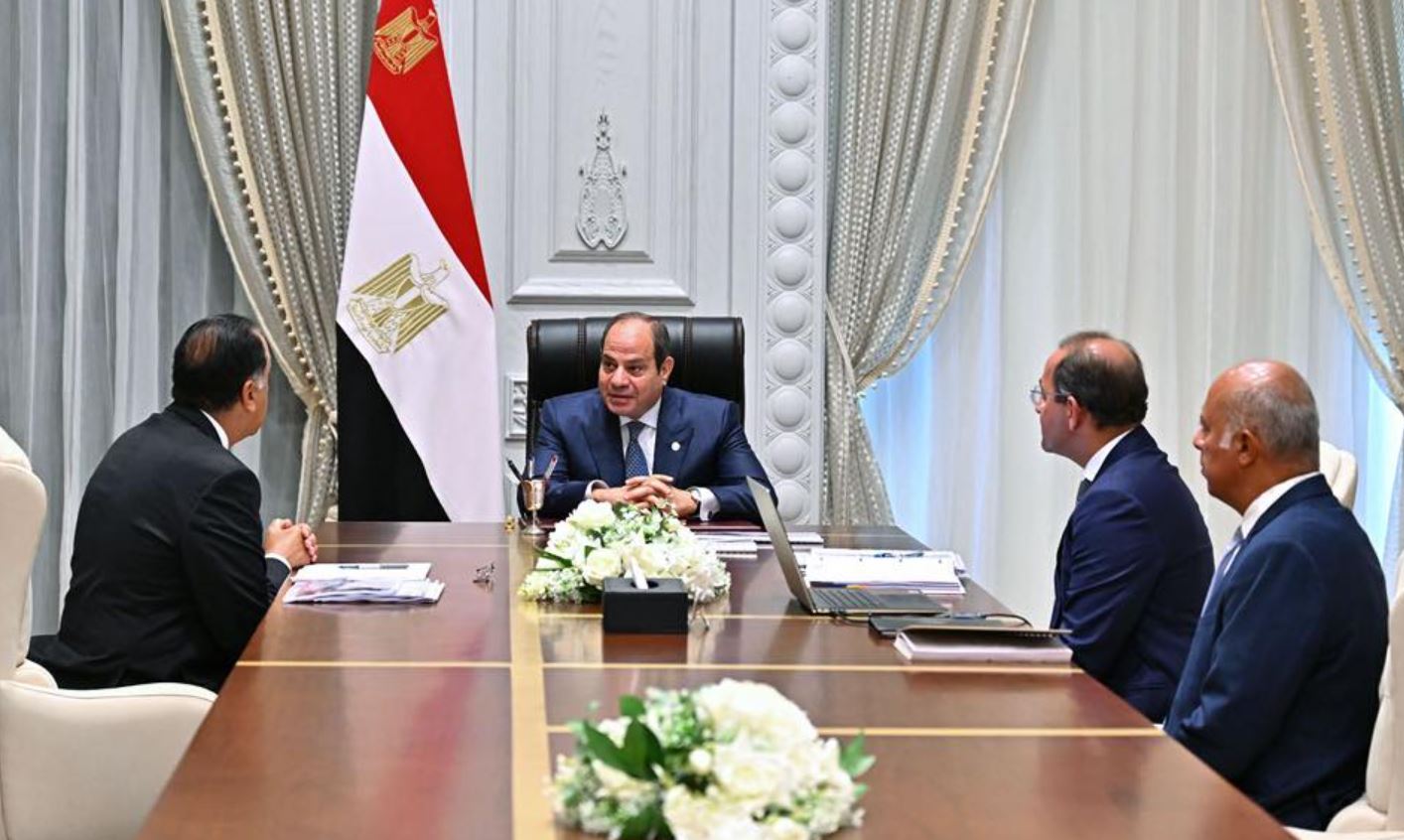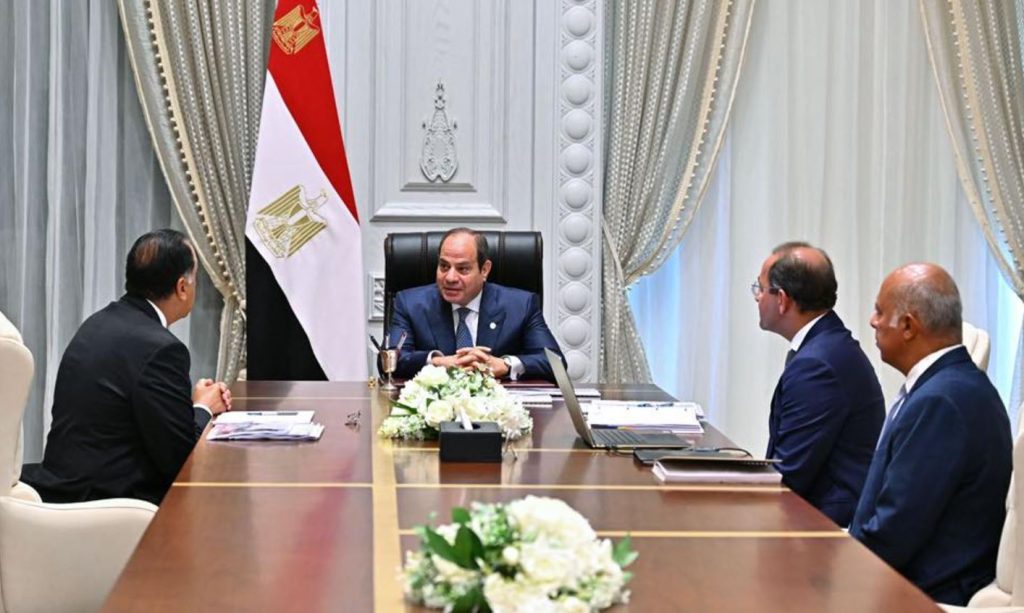Finance Minister Ahmed Kouchouk stated that the government has allocated budgets in the education sector to hire 160,000 teachers to cover shortages during the 2024-2025 academic year, at a cost of 4 billion EGP. Additionally, 6.25 billion EGP has been allocated in the 2024-2025 fiscal year for school nutrition programs to provide comprehensive meals to students, helping combat malnutrition. This was announced during a meeting between President Abdel Fattah El-Sisi, Prime Minister Mostafa Madbouly, and Finance Minister Ahmed Kouchouk. The minister also confirmed that the state allocated budgets to treat over 80,000 critical cases at the state’s expense and covered health insurance subscriptions for the needy amounting to about 2.3 billion EGP in several governorates.
President El-Sisi reviewed preliminary financial performance indicators for 2024-2025, which showed outstanding and balanced results, with a record primary surplus of about 629 billion EGP (3.6% of GDP), an 80% increase compared to the 2023-2024 fiscal year, which recorded a primary surplus of 350 billion EGP. The minister explained that this excellent financial performance was achieved despite significant external shocks, notably a sharp 60% decline in Suez Canal revenues compared to targets, causing estimated losses of about 145 billion EGP compared to the budget. The minister also highlighted significant improvements in all economic indicators, including a large increase in private investment, manufacturing activity, and exports.
The official spokesman for the Presidency stated that the meeting also discussed key financial performance results for 2024-2025, which included a remarkable growth in tax revenues, achieving the highest growth rate in recent years at 35%, thanks to implementing a package of tax facilitation measures, expanding the tax base, and building trust and ease with the business community. The Finance Minister reviewed the growth rates of primary expenditures and general budget revenues, with revenue growth at 29% and primary expenditure growth at 16.3%. Tax revenues for the 2024-2025 fiscal year reached 2.204 billion EGP, an increase of 35.3% compared to the previous fiscal year.
The spokesman added that the minister explained the noticeable improvement in tax performance is due to efforts to expand the tax base by attracting new taxpayers voluntarily, amicably resolving disputes, using technological means and electronic systems, establishing an e-commerce unit, developing the tax system, implementing a tax risk management system, and improving the administrative capacities of the Tax Authority and regulatory procedures. This included updating VAT refund procedures, designing a new system characterized by speed and ease, unifying, simplifying, activating, and improving tax services, expanding tax facilitation, restoring trust in taxpayers by reducing burdens, simplifying procedures, enhancing transparency, reducing evasion opportunities, increasing compliance, and improving collection accuracy.
Regarding this, the minister noted that the results of implementing the first phase of the tax facilitation package from February to August 2025 included submitting 401,929 requests to resolve old tax disputes, in addition to more than 650,000 amended or new tax returns submitted voluntarily, resulting in the collection of 77.90 billion EGP. The number of taxpayers benefiting from incentives and tax facilities for projects with annual turnover not exceeding 20 million EGP, according to Law No. 6 of 2025, reached about 104,129 taxpayers. The official spokesman added that President El-Sisi emphasized during the meeting the necessity of continuing intensive efforts to enhance financial discipline in government procedures, contributing to developing the Egyptian economy’s performance and supporting development efforts. He also stressed the importance of building effective partnerships between government entities and the business community, adopting a balanced fiscal policy to drive growth and maintain financial stability, with priority given to reducing debt service rates and burdens.
The president directed the continuation of efforts to achieve a primary surplus and increase spending on the “Takaful and Karama” programs and the health and education sectors, alongside social protection programs, to alleviate burdens on citizens and enhance social justice.














Recommended for you
Exhibition City Completes About 80% of Preparations for the Damascus International Fair Launch
Talib Al-Rifai Chronicles Kuwaiti Art Heritage in "Doukhi.. Tasaseem Al-Saba"
Unified Admission Applications Start Tuesday with 640 Students to be Accepted in Medicine
Egypt Post: We Have Over 10 Million Customers in Savings Accounts and Offer Daily, Monthly, and Annual Returns
Al-Jaghbeer: The Industrial Sector Leads Economic Growth
His Highness Sheikh Isa bin Salman bin Hamad Al Khalifa Receives the United States Ambassador to the Kingdom of Bahrain